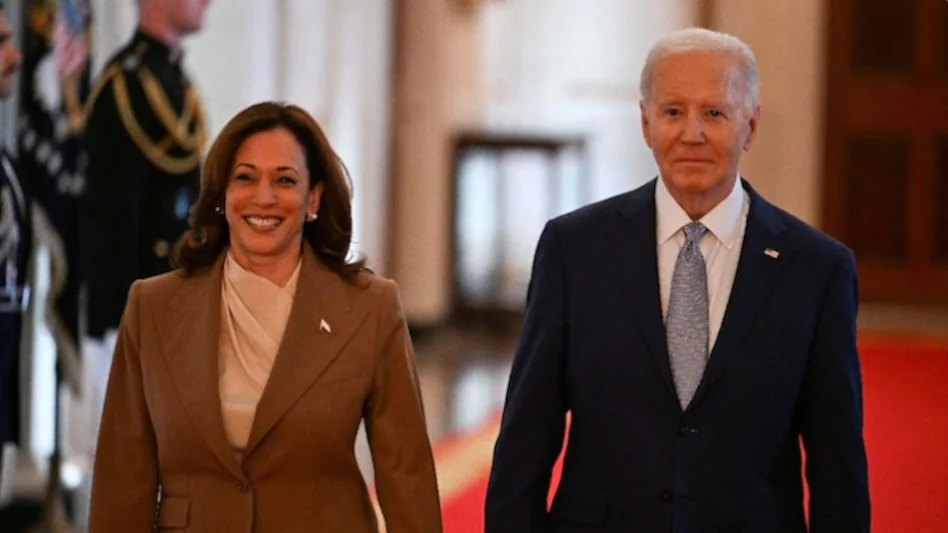In 2020, Kamala Harris presented herself as a progressive contender, sharing policies with Joe Biden’s leftist views during the Democratic presidential primary. Inspired by Bernie Sanders’s agenda, she supported Medicare for All, a comprehensive, universal health care program controlled by the government. By sidelining Harris and other left-leaning Democrats in favor of more moderate government actions, Biden was able to win over centrist supporters and win the nomination.
The former senator from California, Harris, embarked on a historic journey to become the first female vice president when Biden selected her as his running mate for the 2020 election. Harris is now the front-runner to win the Democratic nominee at the party convention in August after Biden withdrew from the 2024 presidential contest. This puts her in a position to potentially break new ground and become the first female president of the United States.
While running for president, Harris is anticipated to stick to Biden’s views, despite her early leftist position. The Kamala Harris of 2024 will resemble Joe Biden’s plan more than her 2020 platform for a number of strong reasons.
One significant factor shaping Harris’s political strategy is the impending expiration of the Trump tax cuts. These cuts, which affect individual taxpayers, are set to expire at the end of 2025, presenting a substantial legislative challenge for the next president. This issue is poised to dominate the political agenda, irrespective of whether a Democrat or Republican occupies the White House.
Should Harris or another Democrat assume the presidency, influential legislators, particularly those on the House Ways and Means Committee, will likely drive the decision-making process regarding the Trump tax cuts. Henrietta Treyz, managing partner at investment research firm Veda Partners, highlighted this dynamic in a Yahoo Finance Capitol Gains podcast, noting that even if Harris has a distinct agenda, the default approach will likely align with the tax policies favored by top Democratic legislators.
Biden’s proposed tax framework for 2025 mirrors the preferences of leading Democrats in the House and Senate. This plan includes higher taxes for individuals earning over $400,000 annually and an increase in the corporate tax rate. Conversely, Trump and the Republicans aim to make the 2017 tax cuts permanent and further reduce business taxes.
The outcome of this tax policy debate will hinge not only on the identity of the next president but also on the composition of Congress. If Harris or another Democrat wins the presidency and the Democrats secure control of Congress, taxes on wealthy individuals are almost certain to rise, with a modest likelihood of a slight increase in corporate taxes. Conversely, a Republican sweep would likely maintain the status quo, keeping taxes unchanged. In the event of a split government, various potential outcomes could emerge from negotiations between the two parties.
Harris’s potential presidency would therefore be influenced significantly by legislative dynamics and existing political priorities. This pragmatic approach underscores the necessity of adhering to the established party platform and responding to immediate policy challenges rather than reviving her more progressive 2020 campaign agenda.
Another reason Harris is likely to follow Biden’s policy path is the need for political continuity and stability. Biden’s administration has implemented several key initiatives and policies that have shaped the current political landscape. Maintaining these policies would provide a sense of continuity and reassure both domestic and international stakeholders of a stable U.S. political environment. This approach would also appeal to moderate and independent voters who have supported Biden’s centrist policies.
Moreover, Harris’s alignment with Biden’s policies could enhance her electability. In the 2020 election, Biden’s moderate stance helped him garner broad support across various voter demographics. By positioning herself as a continuation of Biden’s legacy, Harris could attract a similar coalition of voters, increasing her chances of winning the general election. This strategy would also mitigate the risk of alienating centrist voters who might be wary of more radical policy shifts.
Additionally, Harris’s political pragmatism plays a crucial role in her anticipated alignment with Biden’s policies. Throughout her career, Harris has demonstrated a pragmatic approach to governance, often prioritizing practical solutions over ideological purity. This pragmatism suggests that she would likely adopt Biden’s centrist policies, recognizing the importance of broad appeal and legislative feasibility in achieving policy goals.
Additionally influencing Harris’s policy direction is the larger geopolitical environment. Numerous issues, such as risks to international security, climate change, and economic instability, define the current state of the world. It takes a solid and well-coordinated policy framework to successfully address these problems. Harris could retain the United States’ leadership position in the globe and sustain foreign alliances by upholding Biden’s established policies, which would guarantee a dependable and consistent response to global issues.
In addition, Harris’s emphasis on important domestic concerns like healthcare, economic inequality, and climate change is probably a reflection of Biden’s preferred policies. For example, raising taxes on the wealthiest and making sure corporations pay their fair share of taxes would be a crucial way to combat economic disparity after the Trump tax cuts expire. Harris’s dedication to these core values is strengthened by the way in which this strategy complements Biden’s focus on social justice and economic equity.
Rather than running on a more progressive platform in 2020, Kamala Harris is anticipated to run a similar 2024 presidential campaign to Joe Biden. The Trump tax cuts, which are a major electoral issue, the necessity for political stability and continuity, her practical approach to government, and the larger geopolitical environment all play a part in this expected alliance. Harris’s electability and her adherence to fundamental Democratic principles will both increase if she sticks to Biden’s policy framework, which will guarantee a cogent and successful response to both internal and foreign issues.
If you like the article please follow on THE UBJ.
